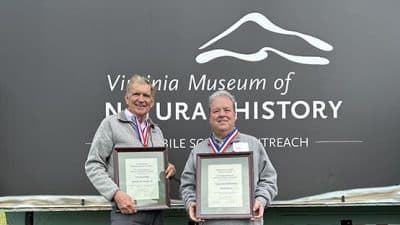
If self-discipline is the fuel that enables us to push through and complete difficult or unappealing tasks, work ethic is the vehicle that mobilizes us. It is also almost universally the determining factor which sets high-performing, phenomenally successful individuals apart from the rest. In short, it is the difference between average and excellent.
While a miniscule percentage of individuals seem to be born with an outstanding work ethic, most of us must invest considerable time and energy into consciously developing it as we mature. Like a muscle, work ethic can be strengthened with practice and training—it only requires dedication and time.
As both a lifetime farmer and a current pre-med student at the University of Kansas, Cody Christenson is no stranger to self-discipline and hard work. In negotiating his academic studies and farming responsibilities, he has used the following methods to successfully develop a work ethic that allows him to simultaneously excel at both.
Get More Sleep
In March of 2014 the Centers for Disease Control (CDC) officially described widespread sleep deprivation as a “public health epidemic.” According to survey data gathered by the organization over the last several years, 35% of Americans regularly receive less than the minimum recommended amount of 7 hours of sleep per night. While exact consequences of such widespread deprivation are difficult to pinpoint, two things are certain: sleep is essential to both physical and mental capacity, and the average individual is simply not getting enough.
We might wrongly imagine hard working individuals as the most sleep-deprived—but work ethic requires focus and focus demands energy. That is why Cody Christenson highlights sufficient sleep as the primary ingredient for a more disciplined and productive lifestyle. If you want to maximize your work ethic, you must first optimize your sleeping habits.
As per CDC guidelines, this generally requires getting more than 7 hours of restful sleep per night. When optimizing sleep habits, however, it is essential to consider quality as well as quantity. For example, leading experts recommend limiting caffeine consumption and reducing blue light exposure (via phone screens, computer screens, and TVs) especially during the evening hours as these reduce overall sleep quality.
Optimize Your Morning Routine
Productive days begin with productive mornings. If you consistently clock into work 10 minutes late, stressed, and disheveled, it is unlikely you’ll have a productive morning. In fact, it is unlikely you’ll achieve much productivity at all throughout the day.
To optimize your morning and boost your work ethic throughout the day, Cody Christenson recommends establishing a solid and enjoyable wakeup routine. Ask yourself what an excellent, relaxing morning looks like for you, and then work strategically to prepare for that morning the night before. Is your travel mug clean and ready for your coffee? Do you know what you are wearing? Do you have a firm grasp on what tomorrow’s primary tasks are?
Focusing a little extra energy on making sure your mornings go smoothly will make it easier to apply a stronger work ethic as you move through your day. Best of all, it only requires applying a little more mindfulness to your evening routine, prepping for the workday before you go to bed, and perhaps waking up a little bit earlier.
Eliminate Distractions
Those with strong work ethics are not necessarily great at resisting the temptation to distract themselves—instead, they strategically cultivate situations in which they have no opportunity to be tempted at all. To eliminate the temptation for distraction, according to Cody Christenson, you must mindfully alter your behavior and your environment to promote focus and productivity.
If you have a designated workspace, this will entail keeping it clean and organized. Even if you work in a more active, varying environment, you may want to think strategically about what distractions you keep within arm’s reach. Cell phones, for example, when not essential for the task at hand, are best left on silent to reduce interruptions.
Other successful methodology for avoiding distractions may include implementing time-blocking strategies to streamline your mental energy. While a variety of methods exist (all of which can be adapted to accommodate specific tasks), basic time-blocking generally involves setting a timer for a short period of time and consciously committing to focus only on that task until the alarm sounds. These blocks of time, when assembled consecutively, will help even those with short attention spans carry large tasks through to completion.
Manage a To-Do List
To-do lists are an old trick. They have stuck around for so long for one fundamental reason: they work. If you are wanting to build a stronger work ethic, they are essential for success.
Of course, list management isn’t a one-size-fits-all solution. Some prefer mobile applications. Others keep it old-fashioned with a pocket notebook and a pen. Regardless of the method, keeping a running list of your daily tasks will help you keep your goals in mind, thereby helping you build a stronger work ethic.
As a residual benefit, effective task management also helps you compartmentalize your “work thoughts,” which might otherwise attach themselves to you permanently, causing relentless stress and burnout.
High-performing individuals juggle a myriad of tasks on a day-to-day basis. Whether you realize it or not, all of that remembering demands a considerable amount of emotional and mental energy. When you practice effective task management, you’re not only setting clear goals and ensuring nothing falls through the cracks—you’re also eliminating the heavy mental burden of internal task management. This, in turn, will reduce stress and improve the quality of your relaxation time, thereby invigorating you to continue working hard.
Establish End-of-the-day Rituals
Contrary to what many may believe, work ethic is not about working longer hours or more days—it’s about working effectively. Humans are not robots; we require a balance of rest and enjoyment to stay content and productive. With this in mind, Cody Christenson highlights mindful relaxation as one of the most productive activities you can do. When implemented with intention, it relieves stress, prevents burnout, and ultimately enables hard work.
With that in mind, optimizing your work ethic will require truly allowing yourself mental and emotional time away from your job. In this sense, implementing a consistent and effective end-of-the-day ritual can do wonders to help you turn off your “work brain” in order to promote healthy relaxation and maximize future productivity. Clocking out physically may be easy—but clocking out mentally, for many, requires conscious effort.
Of course, when it comes to establishing an end-of-the-day ritual that helps you emotionally detach from your workday, there’s no universal solution. What works for you will be unique to your job, your situation, and your personality. Cody Christenson recommends leaving work materials at work when possible, leaving behind a physical to-do list of the next day’s priorities, and promptly changing out of work clothes once you return home. Each of these measures may work wonders to help you mentally clock out and receive much-needed rest.
Story by Jamie Cartwright










